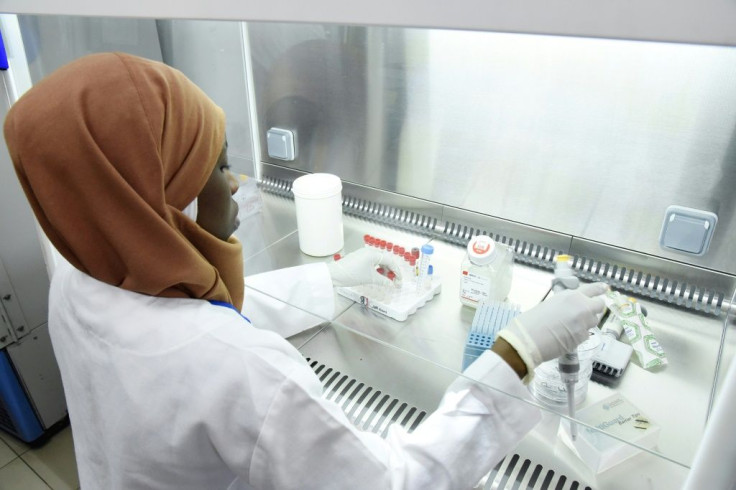Coronovirus Update: COVID-19 Death Toll Tops 2,800 As Cases Outside China Swell; Warren Wants Border Wall Money Redirected

KEY POINTS
- WHO upped the number of confirmed COVID-19 cases worldwide to 82,294, with 2,804 deaths
- Vice President Mike Pence, who was appointed to oversee the U.S. response, was criticized when he was governor of Indiana for being slow to respond to the state's worst HIV outbreak
- The California patient confirmed Wednesday could be the first case of known community transmission in the U.S.
Sen. Elizabeth Warren on Thursday introduced a bill to redirect money from President Trump's border wall to the coronavirus response as doubts about the administration's handling of the outbreak swirled.
"The coronavirus outbreak poses serious health, diplomatic, and economic threats to the United States, and we must be prepared to confront it head-on," Warren, one of the Democrats seeking the party’s presidential nomination, said in a press release. "Rather than use taxpayer dollars to pay for a monument to hate and division, my bill will help ensure that the federal government has the resources it needs to adequately respond to this emergency."
The Prioritizing Pandemic Prevention Act targets $10 billion in border wall funds to be shifted from the Department of Homeland Security to the Department of Health and Human Services.
The measure was unveiled less than a day after the Centers for Disease Control and Prevention confirmed what could be the first case of community transmission of COVID-19, which has sickened nearly 82,300 people worldwide and killed more than 2,800. Of the nearly 1,200 new cases reported, 746 were reported outside China, the epicenter of the outbreak.
“I am deeply concerned not just by the rise of cases of coronavirus worldwide, but by the inadequate and incompetent response we have seen from Donald Trump and his administration,” Democratic presidential hopeful Sen. Bernie Sanders said in an email, citing indications that even if an effective vaccine for the virus is developed, it will be too expensive for most Americans to afford.
Vice President Mike Pence, who was appointed to oversee the administration response by President Trump Wednesday, Thursday chose Dr. Debbi Birx,who handles Washington's fight against HIV/AIDS, as the White House coronavirus response coordinator. The White House dismantled the National Security Council office that would have led the government response to a global pandemic nearly two years ago.
Pence was governor of Indiana when the state suffered its worst HIV outbreak. Critics said the crisis worsened because of his slow response and opposition to a needle-exchange program.
House Speaker Nancy Pelosi and Senate Minority Leader Chuck Schumer issued a joint statement Thursday urging the government to do more to fight spread of the virus.
“The first step the Congress must take is to ensure the government has the resources needed to combat this deadly virus and keep Americans safe,” they said in a joint statement. “Any emergency funding supplemental the Congress approves must be entirely new funding -- not stolen from other accounts.”
The CDC confirmed Wednesday what could be the first community transmission of COVID-19, a Northern California patient who had not traveled to China or come into contact with a returning traveler. Because the person did not meet the narrow guidelines set by government health officials, the patient was not tested for the disease until days after admission to the University of California, Davis Medical Center, having first received treatment at a small community hospital.
President Trump Wednesday tried to allay fears, downplaying the threat and outlining the administration response to the disease. Health officials have confirmed 60 cases in the U.S., including nearly four dozen among Americans repatriated from Wuhan, China, where the disease originated, and the Diamond Princess, the cruise ship that had been quarantined off Japan.
“At this time, the patient’s exposure is unknown. It’s possible this could be an instance of community spread of COVID-19, which would be the first time this has happened in the United States,” the CDC said in a statement.
The Northern California patient, who was on a ventilator, was admitted to the UC Davis Medical Center last week, but federal officials waited until Sunday to administer the test.
“Upon admission, our team asked public health officials if this case could be COVID-19,” the hospital said in a letter to the campus community.
California Gov. Gavin Newsom told a Thursday news conference local health officials are monitoring more than 8,400 individuals for symptoms, including dozens of people who treated the Northern California patient. He said 28 people who tested positive for COVID-19 currently are living in the state and five have left.
Dr. William Schaffner, an infectious disease specialist at Vanderbilt University, said the emergence of the California case indicates there may be more cases out there.
“The thing that would immediately make all of us uneasy is if this person has no direct contact with someone who comes from an affected country,” he told the New York Times.
Jennifer Nuzzo, epidemiologist and senior scholar at the Johns Hopkins Center for Health Security, said the U.S. needs to expand surveillance for the disease if it already is circulating undetected.
“We have been anticipating the potential for such a case in the U.S., and given our close familial, social and business relationships with China, it is not unexpected that the first case in the U.S. would be in California,” Sonia Angell, director of the California Department of Public Health and state public health officer, told the Washington Post.
Japan Thursday reported its first known case of reinfection, a tour bus guide, as the government ordered schools closed until spring break to slow spread of the disease. Japan has reported 186 cases. with three deaths.
© Copyright IBTimes 2024. All rights reserved.






















